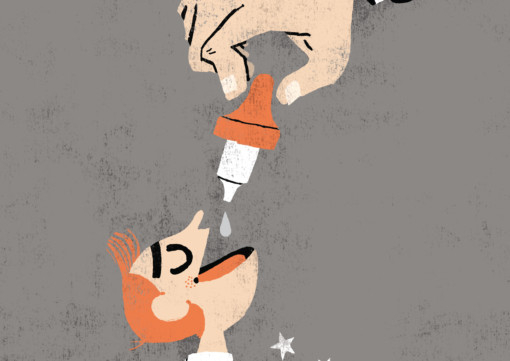
As parents, we do all we can to protect our children, as we are constantly concerned about their safety. We install car seats, we feed them organic and healthy food, we buy them toys that are lead free, we install baby gates, we disinfect them religiously and repeatedly during the day. We ensure that they are living in an environment that is hygienic, with proper sanitation, among all the other things we do, naturally.
Immunisations are no exception. They are another way we keep protecting our children. The importance of immunisations can be, in many cases, the sole differentiating factor between life and death. Some diseases are preventable and avoidable and that can only be achieved through proper and timely immunisations. In the past decades, immunisations have helped millions of children avoid death. The widespread vaccination programmes across the world have dramatically decreased the number of diseases and in some countries even eradicated them.
Our children, the future of the country, are protected because of the initiatives taken by the government and health authorities to provide them with proper vaccines. But what about children in the less fortunate and underprivileged countries? Many underdeveloped countries are unable to provide key vaccines to their population. Children in many of these countries are still susceptible to a wide range of diseases including polio, measles, rubella, pneumonia, mumps, whooping cough, German measles and so on. Lack of immunisation in these countries causes millions of deaths every year. There is shocking statistics saying that a child dies of a preventable disease every 20 seconds, despite all the efforts that are put in place. Fortunately, there are initiatives being taken by organisations and individuals that are trying their level best to lessen the impact of deaths caused by lack of immunisation.
As we concluded the World Immunisation Week recently, Abu Dhabi, in its turn, took a vital step in focusing on the importance of immunisations with the launch of the Global Vaccine Summit. The summit, hosted by and held under the patronage of General Shaikh Mohammad Bin Zayed Al Nahyan, Crown Prince of Abu Dhabi and Deputy Supreme Commander of the UAE Armed Forces — in partnership with Gates Foundation, led by Bill Gates and the UN Secretary General, Ban Ki-moon — aimed to provide poorer countries with vaccines to help reduce child deaths. Global leaders, health professionals, medical organisations, researchers, experts and philanthropists flew in from all over the world to the UAE capital to discuss different issues with one goal in mind — creation of a sustainable strategy for the eradication of diseases. The summit highlighted the role of systems put in place to fight the diseases.
Many individuals and organisations taking part in the summit have been constantly trying to fight off many of these diseases in isolation. The importance of the summit lies in its efforts to unify all resources and forge a potent collaboration between its partners. The outreach programmes will noticeably create a major difference in the lives of millions of underprivileged children.
The main goal of this inkitiative is to minimise child deaths in the less-fortunate countries, with particular focus on the eradication of polio by 2018.
Polio is one of the most feared diseases in the world and the good news is that it can be eliminated completely with proper vaccination. The plan will still face many challenges that include the difficulty to reach areas that are affected by the disease. Nevertheless, the summit will provide an opportunity to world leaders to pledge their support to this very important cause. Pledges, whether financial or moral, will certainly help.
With the significant support of leading philanthropists like Shaikh Mohammad, Bill Gates and Ban Ki-moon, the eradication plan is no longer just a dream, but can be surely translated into reality in the coming years.
Shaikh Mohammad is committed to this initiative since 2011 and has donated $120 million (Dh441.36 million) to this noble cause. Speaking about his commitment, he said: “Saving generations of children from preventable diseases is a great humanitarian initiative that can only be achieved through global collaboration.”
The importance of collaboration cannot be understated as it can transform the lives of generations in poor countries and allow them to lead healthy and productive lives. The power of successful immunisation programmes can be witnessed in countries like India, which has now become polio-free.
It is always better to prevent a disease than treat it and that cannot be done in isolation. The strength of the programme is in uniting all fronts. Despite many of our differences — in terms of religion, ideology or beliefs — we all share something in common: We all want a better life for the children of the world and that is now achievable through great programmes and initiatives such as the The Global Vaccine Summit. The efforts are now visible. The world is witnessing a change. We have to recognise that all the collaborative efforts, with the support of Abu Dhabi, have provided the world with a gift, which is unlike any other gift out there — the gift of saving lives. We should be grateful to such an initiative.
Sheikha Al Maskari is an Emirati writer on social affairs from Abu Dhabi. You can follow her on twitter: http://www.twitter.com/uaeyah










